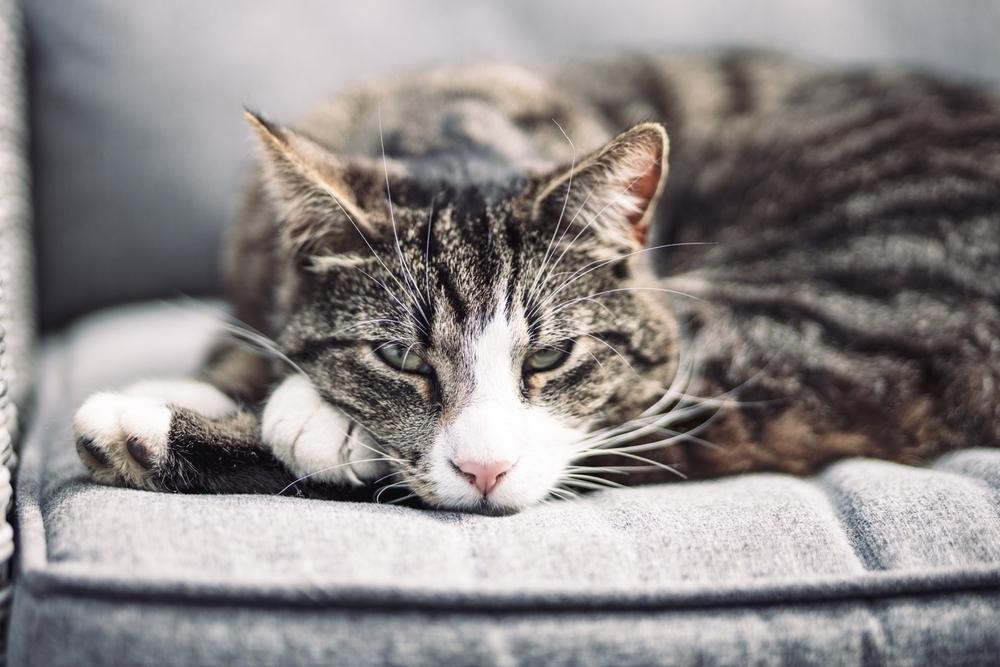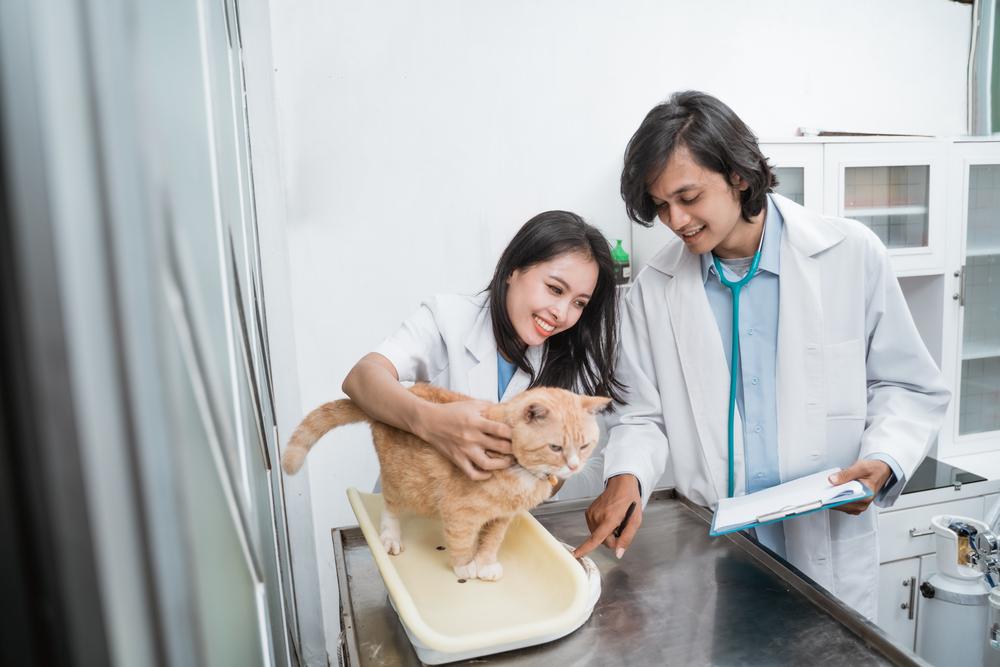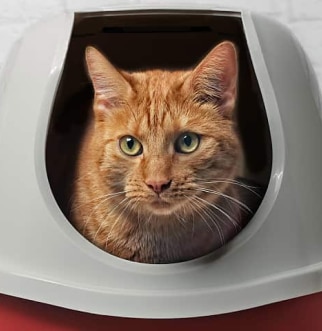

Cat arthritis is a condition that involves painful, inflamed joints. While many pet parents are aware that arthritis is common in older dogs, it's often overlooked in older cats despite also being common, in part because the signs can be less obvious. You can support your cat's care by understanding how to recognize the signs of arthritis in cats and consulting your veterinarian with any concerns. While there's no cure for arthritis, you and your vet can help slow the disease's progression and help your cat feel better.
What Is Cat Arthritis?
Arthritis, also known as degenerative joint disease, is a general term for abnormal changes in the joint. Arthritis in cats can occur when a joint is unstable, causing the bones within the joint to move abnormally. Over time, this abnormal movement erodes the protective cartilage that cushions the joints and bone begins rubbing against bone, leading to chronic inflammation and pain.
While cats of any age can get arthritis, it's most common in middle-aged and senior cats. Cat arthritis isn't curable, and it can be a source of chronic pain that negatively affects your kitty's quality of life. Early identification and treatment are key to slowing arthritis progression.

Does Your Cat Have Arthritis?
Arthritis can affect your cat's behavior and mobility. If your cat has arthritis, one of the first signs you may notice is reluctance to walk, run and jump.
Other signs of arthritis in cats can include:
Showing less interest in play
Sleeping more
Hesitating to jump on or off furniture
Having issues going up and down stairs
Struggling to get comfortable
Eliminating outside the litter box
Limping or walking with a stiff, stilted gait
Hiding or acting socially reclusive
Grooming less
Exhibiting aggression
While most cat parents are tuned into their cat's personality and quirks — like their ability to open a door or proclivity for attacking feet at night — it can be difficult to determine when unusual behaviors signal a health concern. Furthermore, some signs of arthritis in cats can resemble other serious conditions. If you notice any of these signs or other changes in your cat's usual behaviors or habits, consult your vet.
What Causes Arthritis in Cats?
Several factors can lead to arthritis in cats. As cats get older, cartilage begins to degenerate, making the condition much more common in senior cats. Certain cat breeds may also be more prone to arthritis and mobility issues, including Siamese cats, Persian cats and Maine Coon cats. Finally, excess weight means excess stress on the joints and cartilage, which can lead to arthritis and compromised joint health.
Aside from age, genetics and obesity, risk factors for feline arthritis include hip dysplasia, patellar luxation (dislocated knee cap) and a history of joint or bone trauma.
Diagnosis and Treatment for Feline Arthritis
Your vet can diagnose arthritis with a combination of physical examination, a thorough history from you and radiographs (X-rays). If your cat is diagnosed with arthritis, you may wonder what comes next. How can you help your cat feel better? Is there medication for feline arthritis? Don't despair — your cat can still enjoy good quality of life with early detection and proper care and management.
Most vets take a multimodal approach to arthritis relief for cats. Here are some of the more common strategies when it comes to cats and arthritis treatment.
Pain Management
Pain is often the first thing your vet will address. Pain management for arthritic cats usually comes in the form of an anti-inflammatory medication. However, some cats respond well to gabapentin or other pain medications. Depending on the severity of the arthritis, your vet may recommend more than one medication since they can work in different ways.
Never give your cat over-the-counter medications formulated for humans. While they may be safe for you, many are toxic to cats.

Weight Loss
If your cat is overweight, your vet can recommend a weight loss plan to help them achieve their ideal body condition. Maintaining a healthy weight helps reduce pressure on the joints and relieve arthritic discomfort.
Exercise
Physical therapists will tell you that motion is lotion, and the same idea pertains to cats. Movement can help lubricate the joints. Exercise also helps boost metabolism and strengthen bones and muscles.
Environmental Modification
Cats with arthritis can have a hard time climbing stairs or getting in and out of litter boxes with high sides. Installing ramps and providing a litter box with lower sides can go a long way toward helping your furry friend navigate their environment more comfortably. Make sure their food and water bowls are easily accessible, too.
Joint Supplements and Nutrition
Joint supplements are intended to help protect cartilage and reduce inflammation. Talk to your vet about treats and therapeutic nutrition containing optimum levels of joint-supporting ingredients to help support your cat's joint health.
Comprehensive Arthritis Care for Cats
When it comes to joint health, it's always better to be proactive than reactive. Once your cat has arthritis, it can't be cured, only managed. You can protect your cat's joints now by ensuring they're at a healthy weight, feeding them complete and balanced nutrition, and encouraging daily exercise and play. If your cat's already been diagnosed, don't despair. With your vet's continued assistance, you can support your cat's best life with a plan tailored to their needs.



















